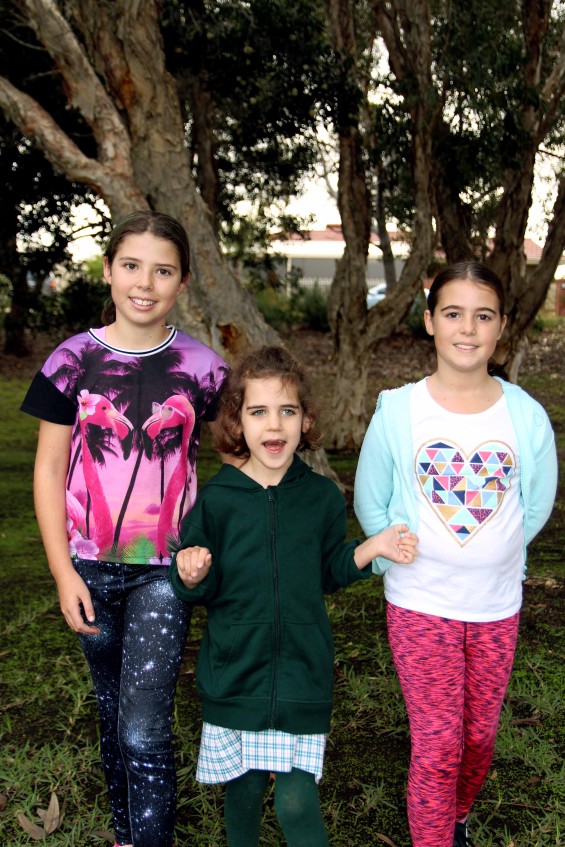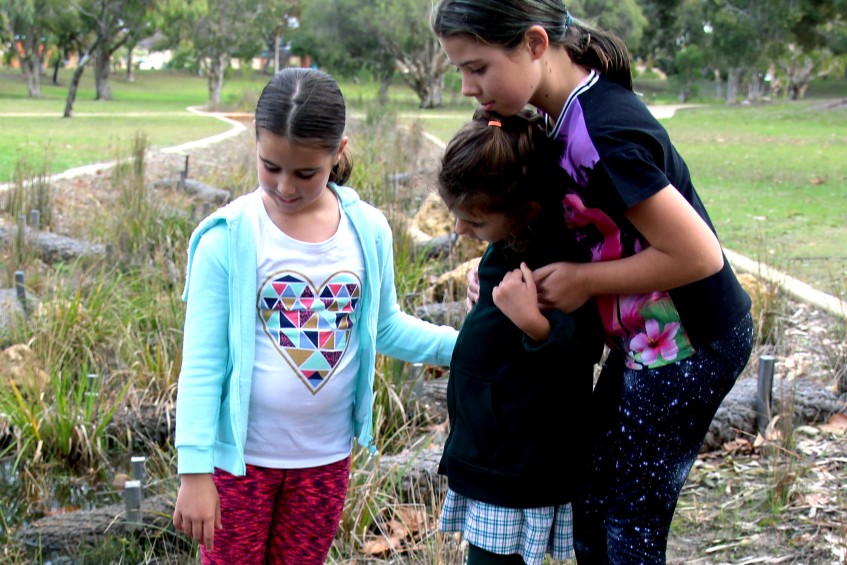EXCLUSIVE – International Day of People with a Disability: Empowering persons with disability

Five year old Peyton, who is supported by Identitywa with her sisters, Dannii and Alliyah. Photo: Supplied.
Auxiliary Bishop of Perth Donald Sproxton has this week urged all Catholics to promote, empower and recognise the gifts of people with disability.
In a statement issued on Monday by the Australian Catholic Bishop Conference (ACBC), Bishop Sproxton, who is the newly appointed Bishop Delegate for Disability Issues, said that as the Church prepared for Advent, it was appropriate to observe the International Day of People with Disability, sanctioned by the United Nations to be held each year on 3 December.
Inspired by the United Nations’ 2030 Agenda for Sustainable Development, this year’s theme is “Empowering persons with disabilities and ensuring inclusiveness and equality”, providing us with a chance to reflect on the challenges experienced by people with disability, he added, and to celebrate their many achievements.
“The 2030 agenda, pledging to ‘leave no-one behind’, is an ambitious plan of action of the international community towards a peaceful and prosperous world, where the dignity of an individual person and equality among all is applied as the fundamental principle,” Bishop Sproxton said.
“It is critical to ensure the full and equal participation of persons with disabilities in all spheres of society and includes active participation in our Church and faith communities to create enabling environments by, for and with persons with disabilities,” he said.
In 2015, close to one in five Australians reported living with a disability (18.3 per cent or 4.3 million people).
A further 22.1 per cent of Australians had a long-term health condition but no disability, while the remaining 59.5 per cent had neither disability nor a long-term health condition.
Furthermore, some 3.7 million Australians with disability, had a specific limitation or restriction such as a schooling or employment restriction (e.g. unable to attend or required special equipment) and/or limitation with core activities, communication, mobility or self-care.
Speaking exclusively to The Record, Bishop Sproxton said the Archdiocese of Perth is committed to achieving an inclusive society, where compassion is given to all people.
“This is thanks to the work of our Archdiocesan agencies that support those with disability and their families, including: Identitywa, the Emmanuel Centre, and the Catholic Association for Deaf and Hard of Hearing People, Catholic Association for Special Education Support, and Personal Advocacy Service.
“These agencies offer high-quality support for people with disability and their families living throughout Western Australia,” Bishop Sproxton said.
Five year old Peyton, who is supported by Identitywa is a prime example of how the Archdiocese works to support and include people living with disability.
Peyton has been regularly “having a break” at Identitywa’s Children House in Riverton for more than five years.
Her mother Kristy said it was merely a day-visit initially and her family was extremely hesitant for Peyton to stay overnight.
“After the first time she stayed, I knew that it was a positive experience for her, without a doubt respite offers Peyton a wonderful break,” Kristy said.
“We live busy lives and staying at the Children’s House gives Peyton some time off from that.
“It also gives me an important opportunity to spend time with my other children and get involved in what they like to do, for example, her sisters, Dannii and Alliyah, have sporting commitments on a Wednesday, which is when Peyton has her regular night stay.”
Kristy believes Peyton has benefited immensely, becoming more patient and making some friends, one of whom she now attends school with.
“Having wonderful people look after Peyton is great as well as we couldn’t ask for better support from the staff at Identitywa.
“I am so thankful. It has been one of the best decisions we ever made for Peyton and our family,” Kristy expressed.

Five-year-old Peyton, who is supported by Identitywa with her sisters, Dannii and Alliyah playing together at a park. Photo: Supplied.
Pope Francis has also said the Church must be welcoming and creative in finding ways to not let people's physical, psychological or intellectual limitations keep them from encountering God.
The Church, he said, cannot be “mute” or “tone deaf” when it comes to the defence and promotion of people with disabilities.
Words and gestures of outreach and welcoming, he explained, must never be missing from any church community, so that everyone, particularly those whose journey in life is not easy, can encounter the risen Lord and find in that community "a source of hope and courage.
“We are all different, there is no one exactly like another,” Pope Francis said, speaking to an audience in October 2017.
“Differences are a richness because I have something and you have something else and by putting the two together we have something more beautiful, something greater.
The Holy Father added that people must not be afraid of diversity, but see it “as the path to improvement, to be more beautiful and richer”.
Bishop Sproxton concluded his comments by saying that people’s faith calls and challenges them to take action to ensure communities are open and active in promoting opportunities that include people with disability.
“This includes work opportunities, empowering people with disabilities to take an active role in leadership and ensuring our faith communities are accessible physically and attitudinally, guaranteeing ‘no-one is left behind’,” he said.
Bishop Sproxton emphasised that there is sufficient support and encouragement for people with disability who live in remote and rural areas, are new to Australia and struggling with the ever-increasing daily expense of living, in the most practical and appropriate manner.
“This timely theme is an invitation and call to us to create and ensure a change in societal attitude that sees disability as a burden to humanity and a costly experience to society,” he concluded.
International Day of People with Disability gives us the opportunity to take a moment and consider how we might make positive changes in the lives of 4.3 million Australians with disability.
For more information and to access Church materials to mark the day, visit www.catholic.org.au/disability
